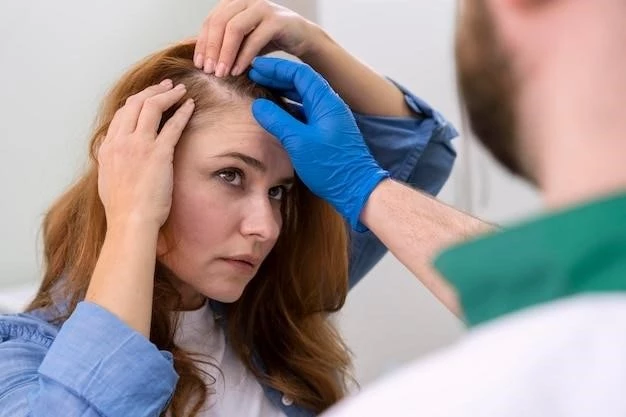Disease ‒ Herpetic Keratitis
Herpetic Keratitis is a serious eye condition caused by infection with the herpes simplex virus. This article will delve into the causes, symptoms, diagnosis, treatments, complications, prognosis, prevention strategies, and case studies related to this sight-threatening disease.
Introduction to Herpetic Keratitis
Herpetic Keratitis is a condition characterized by the inflammation of the cornea due to infection with herpes simplex virus. It is a leading cause of infectious corneal blindness worldwide. The virus can infect the eye through direct contact with contaminated fluids or by reactivation of a latent infection.
The symptoms of Herpetic Keratitis can vary from mild discomfort to severe pain, redness, light sensitivity, blurred vision, and the sensation of a foreign body in the eye. Prompt diagnosis and treatment are crucial to prevent complications such as scarring, vision loss, and recurrent infections.
Herpetic Keratitis can be challenging to manage due to the potential for recurrence and the risk of complications. Treatments typically involve the use of antiviral medications, both orally and in the form of eye drops, to control the viral infection. Ophthalmologists play a critical role in the care of patients with Herpetic Keratitis, monitoring the condition closely and adjusting treatment as needed.
While advancements in antiviral therapy have improved outcomes for patients with Herpetic Keratitis, the potential for vision loss and long-term complications remains a concern. Prevention strategies focusing on proper hygiene, avoiding contact with infected individuals, and early detection of symptoms are essential in reducing the burden of this disease.
Causes and Symptoms
Herpetic Keratitis is primarily caused by infection with the herpes simplex virus, specifically the herpes simplex type 1 (HSV-1) or type 2 (HSV-2) viruses. The virus can be transmitted through direct contact with fluid from a herpetic lesion or by reactivation of latent virus in the trigeminal ganglion.
The symptoms of Herpetic Keratitis can vary depending on the severity of the infection. Common symptoms include eye pain, redness, tearing, sensitivity to light (photophobia), blurred vision, the appearance of a gritty sensation in the eye, and the development of corneal ulcers.

In more severe cases, patients may experience decreased vision, eye discharge, increased tearing, and a feeling of burning or foreign body sensation in the eye. It is essential to seek prompt medical attention if any of these symptoms occur, as early diagnosis and treatment are crucial in managing Herpetic Keratitis effectively.
Understanding the causes and recognizing the symptoms of Herpetic Keratitis is key to preventing long-term complications such as corneal scarring, vision loss, and recurrent infections. Timely intervention by an eye doctor or ophthalmologist can help control the infection and minimize the impact on the patient’s vision and overall eye health.
Diagnosis and Treatment
Diagnosing Herpetic Keratitis typically involves a comprehensive eye examination by an ophthalmologist. The doctor may perform tests such as corneal staining with fluorescein dye, viral culture, polymerase chain reaction (PCR) testing, or examination of the cornea using a slit lamp microscope to confirm the diagnosis.
Once diagnosed, treatment for Herpetic Keratitis often includes the use of antiviral medications, either in oral form or as eye drops. These medications help to control the infection and reduce inflammation in the eye. In some cases, corticosteroid eye drops may also be prescribed to manage severe inflammation.
Patients with Herpetic Keratitis may require close monitoring by their ophthalmologist to assess the response to treatment and evaluate the progression of the infection. Adjustments to the medication regimen may be necessary based on the individual’s response and the severity of the condition.
In cases where the infection causes corneal scarring or significant vision loss, additional interventions such as corneal transplantation or laser therapy may be considered to improve visual outcomes. It is important for patients to follow their ophthalmologist’s recommendations closely and attend regular follow-up appointments to ensure optimal management of Herpetic Keratitis.
Complications and Prognosis
Herpetic Keratitis can lead to various complications if left untreated or inadequately managed. These complications may include corneal scarring, vision loss, recurrent infections, and in severe cases, corneal perforation. Corneal scarring, in particular, can result in permanent vision impairment.
The prognosis for individuals with Herpetic Keratitis depends on factors such as the severity of the infection, promptness of treatment, presence of underlying conditions, and the patient’s overall eye health. Early diagnosis and appropriate management can significantly improve outcomes and reduce the risk of long-term complications.
Despite advancements in treatment, Herpetic Keratitis can be challenging to control due to the potential for recurrent infections and the development of drug-resistant strains of the virus. Patients with a history of the condition may require long-term monitoring by their ophthalmologist to prevent flare-ups and preserve visual function.
It is essential for individuals diagnosed with Herpetic Keratitis to adhere to their treatment plan, attend regular follow-up appointments, and promptly report any changes in symptoms to their eye doctor. By actively participating in their care and maintaining good eye hygiene practices, patients can help mitigate the risk of complications and improve their overall prognosis.
Prevention Strategies
Preventing Herpetic Keratitis involves implementing various strategies to reduce the risk of herpes simplex virus infection. Maintaining good eye hygiene, avoiding direct contact with individuals experiencing active herpetic lesions, and refraining from sharing personal items such as towels or eye makeup can help prevent transmission of the virus.
Individuals at higher risk of developing Herpetic Keratitis, such as those with a history of ocular herpes or compromised immune systems, should be particularly vigilant about protecting their eyes from potential sources of infection. Wearing protective eyewear in situations where eye injury is possible can also help prevent the introduction of the virus into the eye.
Educating oneself about the symptoms of Herpetic Keratitis and seeking prompt medical attention if any signs of infection develop are essential components of prevention. Regular eye exams with an ophthalmologist can help detect early changes in the eye and enable timely intervention to prevent the progression of the disease.
By adopting a proactive approach to eye health, practicing good hygiene habits, and following the guidance of healthcare professionals, individuals can significantly reduce their susceptibility to Herpetic Keratitis. Prevention is key in protecting the eyes from this potentially sight-threatening condition and preserving long-term visual function.
Case Studies and Research
Case studies and ongoing research play a crucial role in advancing our understanding of Herpetic Keratitis and improving treatment outcomes. By examining individual cases of the disease, researchers can analyze different treatment approaches, outcomes, and factors that influence the progression of the condition.
Research efforts focus on exploring new antiviral medications, treatment protocols, and strategies to mitigate the risk of complications associated with Herpetic Keratitis. Studies also investigate the impact of the disease on visual acuity, quality of life, and the overall burden on affected individuals.
Case reports provide valuable insights into rare presentations of Herpetic Keratitis, atypical responses to treatment, and potential challenges in managing the disease. These real-world scenarios contribute to the collective knowledge base and guide healthcare professionals in optimizing care for patients with this condition.
Through collaborative research initiatives and the sharing of clinical experiences, advancements in the diagnosis, treatment, and prevention of Herpetic Keratitis continue to evolve. The results of studies and case analyses inform evidence-based practices, shape treatment guidelines, and drive innovation in the field of ophthalmology.
Conclusion
In conclusion, Herpetic Keratitis is a significant ocular condition caused by the herpes simplex virus that can result in inflammation of the cornea, leading to potential complications such as scarring and vision loss. Timely diagnosis and appropriate treatment by ophthalmologists are essential in managing this disease effectively.
Prevention strategies, including good eye hygiene practices, avoiding contact with infected individuals, and seeking medical attention at the first sign of symptoms, play a critical role in reducing the incidence of Herpetic Keratitis. By adhering to recommended protocols and maintaining regular eye exams, individuals can protect their eye health and minimize the risk of infection.
Case studies and ongoing research are vital in expanding our knowledge of Herpetic Keratitis, improving treatment options, and enhancing patient outcomes; Collaborative efforts within the medical community drive advancements in care, leading to better management of the condition and reduced impact on visual function.
By staying informed, proactive, and engaged in preventive measures, individuals can mitigate the risks associated with Herpetic Keratitis and safeguard their eye health; Through awareness, education, and access to quality eye care, the prognosis for individuals affected by this condition can be significantly improved, ultimately preserving vision and overall well-being.
